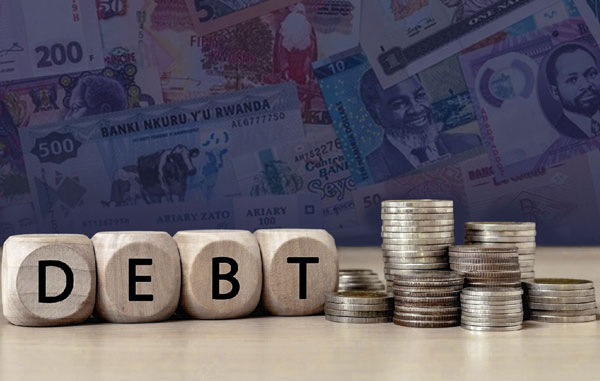
Rwanda’s successful Eurobond repayment serves as a reminder that there is resilience in African bond markets, despite the “perfect storm” of COVID-19, high inflation and trade disruptions
SPECIAL FEATURE | BIRD AGENCY | In the face of economic challenges, Rwanda has achieved a significant milestone by successfully repaying its $400 million debut Eurobond, after defaults by Zambia and Ghana, which were unable to repay US$3 billion and US$13.2 billion respectively.
A statement from the Rwandan Ministry of Finance to The East African, a regional media outlet, indicated that the loan, which was due this month, is now fully repaid, thanks to IMF financing and prudent saving.
The report further details that the released amount – US$63 million, equivalent to 15.1% of the 2013 Eurobond – was to repay IMF’s Special Drawing Rights loan offered in 2021 and meant to bolster COVID-19 mitigation.
“Foresight and proactive measures by the government have significantly reduced the risk of default,” the ministry said in the statement to the East African.
The bulk of the Eurobond was repaid during the pandemic when many countries in Africa enjoyed a low-interest rate waiver from the IMF and other financiers.
Gregory Smith, the Emerging Markets Fund Manager at M&G Investments, a global asset manager, explained that Rwanda was able to successfully manage its Eurobond due to the fact that it had kept the bond relatively low from the onset.
This allowed the country greater control over its debt obligations and reduced the risk of default.
“The dollars borrowed in 2013 were equivalent to 5.1% of its then GDP… one of only (a) handful of Eurobonds issued by a country with GDP per capita under a thousand dollars,” he explained.
Beyond achieving this repayment milestone at a time when countries are struggling to keep abreast with the global headwinds, the East African country managed to tick all the boxes on the mega projects the loan was meant to finance.
The projects included the Kigali Convention Centre, which had a budget of US$270 million, an allocation of US$80 million to incentivize RwandAir, the national carrier, and a further US$50 million for the Nyabarongo hydro-power project.
According to Smith, the main lesson Rwanda offers African countries is the manner in which it undertook detailed planning of the projects and how it kept a consistent reportage of the progress, ensuring prudent use of debt to achieve development.
With 18 different venues able to host more than 5000 delegates simultaneously, the Kigali Convention Centre was unveiled in 2016 and is today one of the region’s biggest event-hosting hubs.
In 2013, RwandAir operated a modest domestic and regional network, using leased and second-hand aircraft. Today its modernised fleet and routes cover global markets.
“RwandAir’s fleet size stands at 13 aircraft, consisting of three long-haul, one freighter, and nine short-haul aircraft,” according to the RwandAir website.
Construction work on the first phase of a 43MW Nyabarongo hydropower plant was launched in May 2022 and is expected to be completed by 2024.
Rwanda’s success in repaying its Eurobond offers a valuable lesson, according to Smith.
Egypt repaid a 5-year, US$1.25 billion Eurobond, in February. The spotlight now falls on six African countries, including Angola, Ivory Coast, and Kenya, with loans worth more than US$498 million.
Other African nations with (smaller) Eurobonds that are maturing include Benin, Cameroon, and The Republic of the Congo.
Pangea-Risk, an African and Middle East market forecasting firm, in a 2022 research showed African countries need to make external bond repayments amounting to US$21.5 billion between 2022 and 2027.
*****
SOURCE: bird story agency
 The Independent Uganda: You get the Truth we Pay the Price
The Independent Uganda: You get the Truth we Pay the Price





